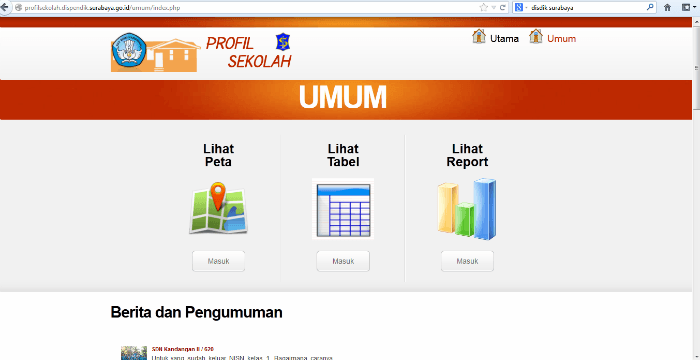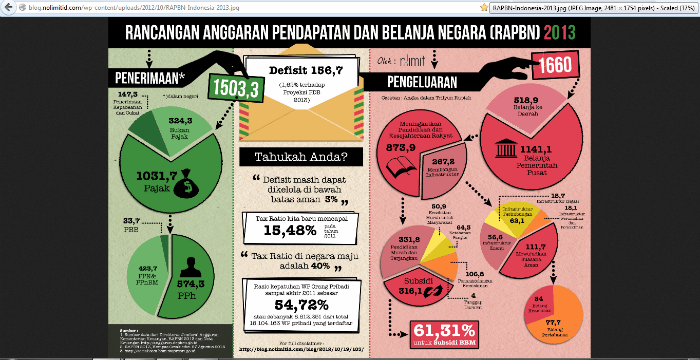OGI Regional Pilot Projects: Implementing Open Government in Indonesia’s Local Governments
The implementation of open government principles in Indonesia is unique because of the country’s structure as a unitary-decentralized state. As a result, openness has to be promoted both at the national and local levels. OGI Regional Pilot Projects, an initiative by Open Government Indonesia (OGI), promotes open government principles in the local governments. This post discusses the implementation dynamics of the Regional Pilot Projects in three of Indonesia’s local governments.
In 2012, Open Government Indonesia (OGI) initiated regional pilot projects in three areas: Central Borneo Province, Indragiri Hulu Regency, and Ambon City. The projects consist of several programs, covering everything from the appointment of the Managing Officer of Information and Documents (Pejabat Pengelola Informasi dan Dokumentasi in Indonesian) to the Open Budget and the Open School initiatives. These programs are carried out in all those three areas. There are also programs applied solely in one area, such as e-office and website revitalization in Central Borneo. The appointment of the Managing Officer of Information and Documents is a major goal of OGI movement, which is also a mandate of the Public Information Openness Act of 2008. Although the Act requires that every government body, local and national, appoints such an officer, the appointment rate is very low in the local level. Only less than 10% of local government bodies, both in provincial or sub-provincial levels have appointed such officers.
At the same time, growing Internet literacy among Indonesian people is increasing demand for better websites of government bodies, especially for local governments where people ask for their services on a regular basis. Many local government websites are filled with news copied from local/national news websites and useless hyperlinks; they make interaction between the citizens (users) and the government seems impossible. OGI gives those governments technical support to make sure that the governments will design fresh, good-looking, user-friendly websites and upload required information on these websites. The opening of the government and educationAccountability within the public education system is key to improving outcomes and attainment, and accountability is nearly impossible without transparent policies and opportunities for participation ... budgets is another target of the regional pilot projects. The governor or mayor can issue an executive order to push the local bureaucrats to open such documents to the public. The orders from the head of local governments are the basis of the Open Budget (the publishing of government budgets) and the Open School (the publishing of education budgets and other resources-related information). In fact, starting the Open Budget and Open School initiatives are as easy as uploading the documents on the website or placing them in online community boards.
Yet, the execution of the programs is not as simple. Bureaucratic deadlock and the potential for legal problems hinder the implementation of Open Budget and Open School. In order to tackle that problem, a firm leader is needed to break the boundaries within bureaucracy and to give clear commitmentOGP commitments are promises for reform co-created by governments and civil society and submitted as part of an action plan. Commitments typically include a description of the problem, concrete action... of support that there will be no legal problems arise following the publishing of such documents. Certainly, strong leaders would have more willingness to give such a guarantee.
 Picture 1. Example of Open School in another area, the city of Surabaya (not part of Regional Pilot Projects) showing the map of school, report and school operational fund realization (http://profilsekolah.dispendik.surabaya.go.id)
Picture 1. Example of Open School in another area, the city of Surabaya (not part of Regional Pilot Projects) showing the map of school, report and school operational fund realization (http://profilsekolah.dispendik.surabaya.go.id)
The idea of the Open School arises from the existence of “School Operational Fund” program (Bantuan Operasional Sekolah in Indonesian). The Government created this fund in order to meet the human development target. As a result, the usage of this fund becomes a sensitive issue in national and local governments. The demand for transparencyAccording to OGP’s Articles of Governance, transparency occurs when “government-held information (including on activities and decisions) is open, comprehensive, timely, freely available to the pub... More in the education sector grows to prevent this fund from being used for non-educational purposes. The Ministry of Education has issued a technical guidance for the usage of this fund. Citizens can inspect whether the usage of the fund by the school is proper or not by checking it against the guidance. Accordingly, the Open School program makes sure that the public can monitor the usage and contribute to the optimization of the fund.
One common form of Open Budget is “Citizen Budget”. Citizen Budget is created to increase public understanding and awareness by publishing easy-to-digest government budget infographics. Both OGI and the local governments realize that not every citizen has enough time and skill to understand the budgetary document comprehensively. So, Citizen Budget was created to make sure that all citizens from various backgrounds could understand and give inputs to the government income and spending.

Picture 2. Example of Citizen Budget of Indonesia Budget Plan of 2013 (http://blog.nolimitid.com)
All programs of the Regional Pilot Projects in those aforementioned three areas are intended to be replicated in every local government in Indonesia. However, it is anticipated that the context is different in each area, allowing room for flexible implementation yet with certain standards for the intended results. In essence, the experiences and knowledge of opening government in local areas are not only beneficial for Indonesia. Other developing countries can hopefully learn from what Indonesia has done, especially those countries with a multicultural population and a decentralized governing system.
